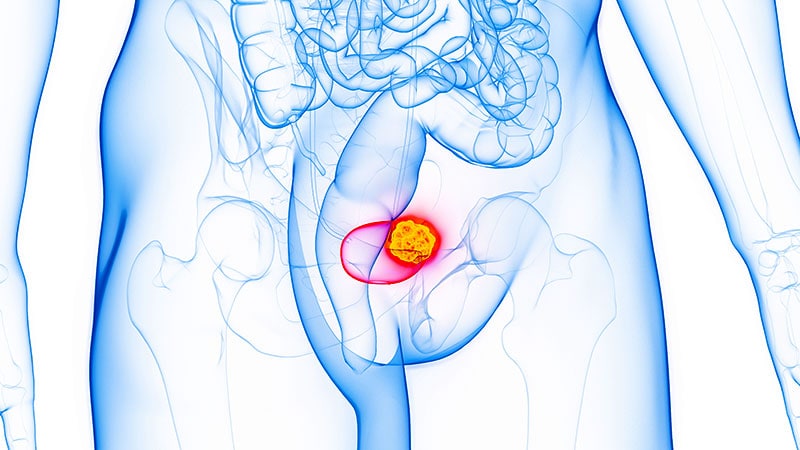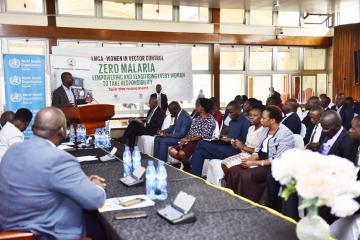— A podcast, Netflix series, and TV adaptation examine regenerative medicine doctor’s wrongdoings
by
Rachael Robertson, Enterprise & Investigative Writer, MedPage Today
November 30, 2023
A wave of media has brought renewed attention to the cautionary tale of disgraced surgeon, Paolo Macchiarini, MD.
Although Macchiarini is now known for his failed medical experiments on patients, he was once considered a pioneer of regenerative medicine.
More than a decade ago, Macchiarini implanted the first bioartificial trachea into a patient, a procedure he did on a handful of other patients in the following years. Most of those patients are now dead.
In June, a Swedish court of appeals found Macchiarini guilty of gross assault and sentenced him to 2.5 years in prison. Last year, he was also convicted by a Swedish court of “causing bodily harm.”
The new Netflix docuseries “Bad Surgeon: Love Under the Knife” explores Macchiarini’s personal and professional life. Macchiarini also was the subject of season 3 of the hit podcast Dr. Death, a television adaptation of which debuts next month on Peacock. Previously, news stories and documentaries played a role in bringing Macchiarini’s wrongdoings to light.
MedPage Today asked experts to weigh in on how the once-renowned surgeon fell from grace — and how his legacy has impacted the field of regenerative medicine.
Stephen Badylak, DVM, PhD, MD, professor of surgery and bioengineering and deputy director of the McGowan Institute for Regenerative Medicine at the University of Pittsburgh, said that while tragic, Macchiarini’s case “is a really a good example of how the science community polices itself.”
“You cannot get away with reporting false outcomes. It always catches up with you,” he said.
Badylak explained that when Macchiarini first started getting major attention, he was doing science no one else was doing. Macchiarini said that it was possible to replace diseased portions of the trachea or the major bronchi that branch from the trachea.
“It’s one of these truly unmet medical needs, and he was claiming to have a solution which involves tissue engineering, taking a scaffold and placing it in these places, seeding it with stem cells and then being able to get results that nobody else could get,” Badylak said.
For many years, Macchiarini was a professor and researcher at the Karolinska Institute in Sweden, which features a timeline on its website detailing its association with Macchiarini.
At Karolinska University Hospital, he surgically implanted an artificial trachea in three patients from 2011 to 2012 and published research about the first one in The Lancet. In 2012, the second patient he operated on died; 2 years later, the first patient died. That same year, Macchiarini’s research was called into question several times. Then in 2017, the last of the three patients died.
The Swedish court said that the first two patients could have survived longer without the surgeries and that the third patient shouldn’t have been operated on, since it was already clear there were issues with the procedure.
According to Science, Macchiarini also implanted artificial tracheas in patients in the U.S. and Russia from 2011 to 2014, and all but one patient died. The sole survivor had the implant removed.
Bryon Petersen, PhD, a professor of stem cell research at the University of Florida in Gainesville, said it’s unwise to assume stem cells are the answer to everything.
“If you’re going to stick a stem cell into an area that has a lot of inflammation, you have to make sure that the cells that you transplant don’t become part of the problem. And we have yet to figure out a way to control them to a point where they’ll be useful,” Petersen said.
Petersen said Macchiarini is an example of doctors having what he called a “God complex.”
“Ego is is running amok over the logic of what should be done or could be done,” Petersen said. “They’re losing the sight of the patient and focusing on the goal that gives them the accolades.”
Petersen sees connections between what Macchiarini did and other instances of institutions not fostering a healthy environment for rigorous research. One example he gave was Jim Wilson, MD, PhD, and the Gene Therapy Program at the University of Pennsylvania in Philadelphia, which has faced allegations of cultivating a toxic workplace.
Badylak added that Macchiarini’s case is a reminder of how hard it is to get to human trials — and why rigor is part of safe medicine.
“Before you go into patients, you should have as much information on the bench top or in preclinical animal studies as possible that this has a good chance of working when you take next step into humans,” he said. “And that’s where he, I believe, fell down.”
![author['full_name']](data:image/svg+xml;base64,PHN2ZyB4bWxucz0iaHR0cDovL3d3dy53My5vcmcvMjAwMC9zdmciIHdpZHRoPSI1MCIgaGVpZ2h0PSI1MCIgdmlld0JveD0iMCAwIDUwIDUwIj48cmVjdCB3aWR0aD0iMTAwJSIgaGVpZ2h0PSIxMDAlIiBzdHlsZT0iZmlsbDojY2ZkNGRiO2ZpbGwtb3BhY2l0eTogMC4xOyIvPjwvc3ZnPg==)
Rachael Robertson is a writer on the MedPage Today enterprise and investigative team, also covering OB/GYN news. Her print, data, and audio stories have appeared in Everyday Health, Gizmodo, the Bronx Times, and multiple podcasts. Follow
Note: This article have been indexed to our site. We do not claim legitimacy, ownership or copyright of any of the content above. To see the article at original source Click Here



![author['full_name']](https://clf1.medpagetoday.com/media/images/author/Rachael_Robertson_188.jpg)










